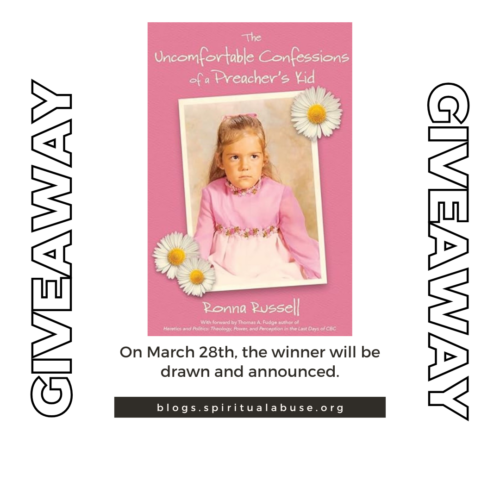Editorial Note: The following is reprinted with permission from Eleanor Skelton’s blog. It was originally published on May 10, 2025.
I wrote this in my journal on December 10, 2021. Learning what forgiveness looks like outside of fundamentalist Christianity, what forgiveness can be like when it’s healthy and not harmful for the person doing the forgiving, has been so important to me in my journey to leave behind and heal from high-control religion.
So I had an epiphany while I was processing what healthy forgiveness looks like.
There’s a part in season 9 of The Walking Dead where Father Gabriel is trying to convince the scavenger garbage lady Anne not to kill him with a walker and he finally says, “I forgive you, Anne, for whatever you have to do.”
He apologizes for pushing her away and it’s definitely kinda like a Jesus moment for him.

Photo: The Walking Dead, AMC
You can tell Father Gabriel is about to accept death, but he forgives her in the moment because he loves her so much that he knows she is going to regret what she’s doing to him later and grieve and hate herself. He loves her so much he doesn’t want her to do that.
This scene basically broke me inside for reasons. All the religious trauma and spiritual abuse recovery reasons.
Because I was taught for so long in fundamentalist Christianity that sacrificial love was obligatory and enduring mistreatment from other people was just part of becoming more holy.
I didn’t realize it was possible to radically accept something so horrible and still hold so much love for the person who is about to harm you without basically enabling yourself to be abused.
I don’t think it’s necessarily a regular thing that people with healthy boundaries should do, obviously, but it’s deeply moving.
It feels different.
Sitting through abuse without defending yourself normally feels cold and awful and like I’m worthless.
This scene feels like the love you hold and your own faith in yourself and the love you feel from your own connection to what feels divine protects you and enables you to still be you in the middle of something horrible happening to you instead of breaking you.
It feels warm and beautiful and so radically undeserved, not because “we are bad” but because it normally feels humanly impossible. I think it just clicked for me like this morning why church hymns call this “amazing” and “wonderful” and why one of my friends said last summer that “none of us deserve it.”
Not because “we are scum,” but because it is unexpected and healing and sometimes we don’t expect a grace like that.
Because we have crossed a boundary and caused harm, so we naturally expect to lose something as a result, which would only make sense.
But instead, we don’t. We are held. And we are loved.
********
Shop at our Amazon store! As an Amazon Influencer, this website earns from qualifying purchases.




